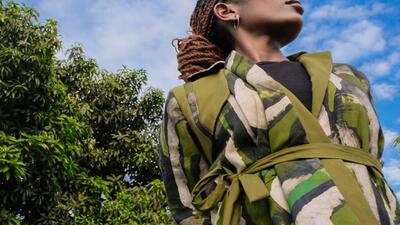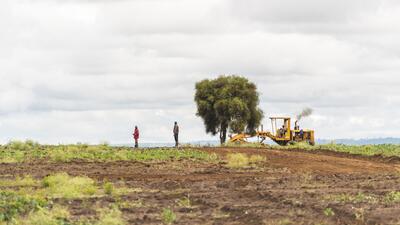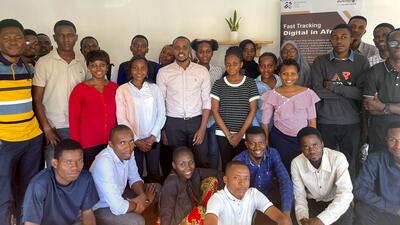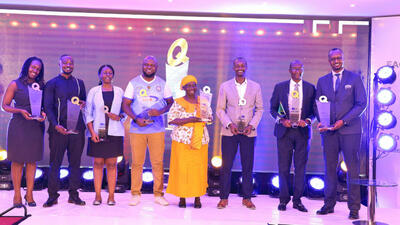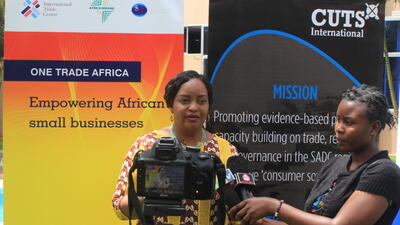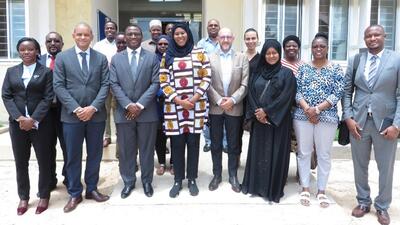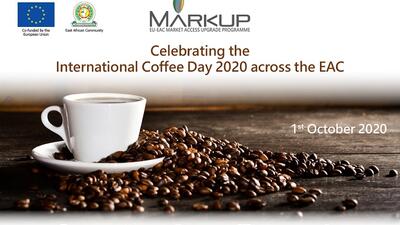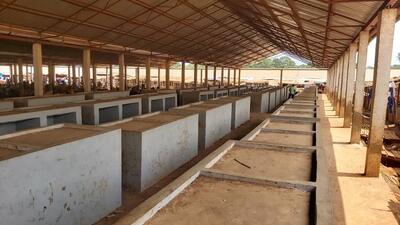Simple measures, better lives
Building a new market provides economic opportunities for women and youth in the host community of Kigoma, Tanzania
When asked about their hopes and dreams, women and youth in Tanzania’s north-western province give very similar and straightforward answers: they want to provide for their families and send their children to school.
But life in Kasulu Town is not easy. And these necessities are not a given.
‘Sometimes it is challenging. It depends on the day. I might only sell half a litre bag and get 500 shilling ($0.22), or I might sell one litre and get 1,000 shilling ($0.43),’ says Paulina Abosi, who sells rounded potatoes at Sofya Market.
Selling agriculture produce is a lifesaver for many women and young people in Kigoma.
‘Selling cassava flour helps me sustain my family’s basic needs, even paying the school fees,’ explains Ashura Maparara, an entrepreneur at Sofya Market.
Lack of infrastructure hinders access to markets
But the local farmers’ biggest challenge is the absence of infrastructure. The solution? Building a new market that improves the business environment for 1,120 women and youth, offering a proper work environment for selling their agricultural products.
‘Sofya market is one of the biggest markets in the Kasulu district. It serves a lot of people,’ says Adili Charles Mlowe, district coordinator of Kasulu Town Council and planning officer of Sofya Markets.
One of the five planned sheds is up and running, which means some sellers are already enjoying the improved working conditions. ITC has been supporting the Kasulu Town Council in building the sheds to protect women and youth against weather conditions and prevent product damages.
‘Selling on the ground means produce is exposed to dirt, so it is difficult to maintain good quality,’ says Mlowe.
Paulina is content with the new conditions: ‘My potatoes used to get dry when they were exposed to the sun all day. When it rained, they got rotten. With the roof, things have changed.’
Another young entrepreneur who sells rice, cassava and potatoes, Saidi Omari Kibaranyi, agrees: ‘Since the renovation of the market, my life has really improved. Now I have enough tables to store and display our produce. This helps me to sell what I want and I can pay the school fees for my children.’
Supporting the host community
Kigoma is one of the poorest and most isolated regions in Tanzania, with a community of over 300,000 refugees coming from Burundi and the Democratic Republic of the Congo. This makes the social situation difficult and employment a challenge – but it also provides an economic opportunity. The government is planning to turn Kigoma into a trade and business hub at the crossroads with its neighbouring countries.
Youth and women’s economic empowerment is crucial to the region in the fight against poverty. ITC, together with 16 other UN agencies, is helping marginalized groups in the host community, who have experienced an influx of refugees, build sustainable livelihoods in the agricultural sector.
The project also indirectly benefits refugees in the region: beneficiaries include women and young refugees as well as host community members. This way refugees benefit too.




